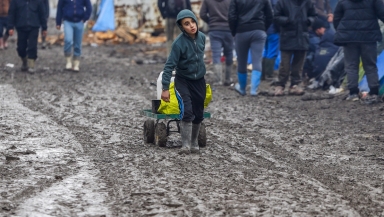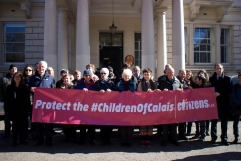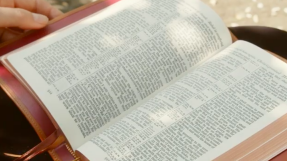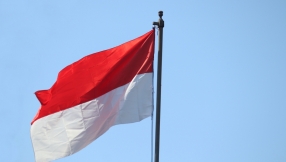
More than 100 children have vanished from the Calais refugee camp according to a recent census. Charities have expressed shock and concern, particularly following evidence of the abuse and rape of boys in the camp.
Around 500 children were known to have been fending for themselves in the camp on the French border, known as the 'Jungle', without their families or a responsible adult. A new census by Help Refugees UK revealed that 129 of those children are now unaccounted for, the charity said yesterday. They have called for immediate action by the French authorities to safeguard the remaining 270 plus children.
"We are deeply shocked and very concerned to report that 129 unaccompanied minors cannot be accounted for," said a statement from Help Refugees UK. "No alternative accommodation was provided for unaccompanied minors during the [recent] evictions, no assessment was made by the French authorities of their needs and no systems put in place to monitor them or provide safeguarding. There is no official registration system for children in place in Calais or Dunkirk."
Charities have been highlighting the plight of the unaccompanied children for some time, as sex traffickers and criminal gangs are known to have targeted the site. Doctors working in the camp have made credible reports of boys in the Calais Jungle having injuries consistent with being raped.
Children often make their way to Calais via traffickers, having been orphaned or estranged from their families due to war or other problems. Or they were sent by their families, who had hoped for their children to have a better life.
Tanya Freedman of Help Refugees UK said that the missing children may have tried to enter other countries or refugee camps, but there is no way of knowing at present. "These are children and it is absolutely shocking that there is nothing in place to protect them," she told Christian Today. "I would imagine that some have gone to other camps or other countries. But it's quite a big number of children that we just don't know where they've got to. I think we have a moral duty to not have 129 children just disappear."
People on the ground report a lack of government or charity intervention at Calais, which is often blamed on the issue having become a political football, and the reluctance to encourage more people to travel there.
"David Cameron has said the UK will take children from across Europe, but he seems to be deliberately not taking people from Calais," said Ben Bano of Seeking Sanctuary, an ecumenical charity that is seeking to help the refugees practically.

"We think that these children are vulnerable to abuse and people traffickers. Why haven't the social services, particularly in France, been more active? The French children's commissioner has expressed her concerns. They should be much more concerned about the whole situation. Neither the British or French governments seem concerned to do much about it."
The Help Refugees UK survey found that nearly 5,000 people remain at the camp, including around 1,400 in modified cargo containers. "The average age of the minors in camp is 14.2, with the youngest just one month old, and the youngest unaccompanied child aged only eight," said the statement.
Meanwhile, the recent clearance of the south side of the camp has left the Eritrean church, which had been a site of worship and prayer for the community in the camp, still standing. But no shacks and tents are around it any more, according to Bano. "Before it was the centre of the community, but now it is not and it's on its own," he said. "It could get attacked or could be vulnerable."
He said that contributions from churches and others to the jungle include donations from Lenten lunches, woolly hats from knitting groups and some playing cards from a bridge group.















